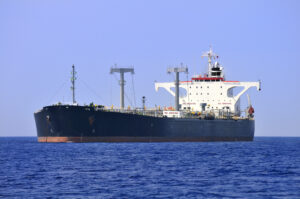The United States expanded sanctions against Iran’s petroleum and petrochemical sectors on Friday in response to Iran’s October 1 attack on Israel, the US Treasury Department said.
Included in Friday’s sanctions are Iran’s so-called “ghost fleet” of ships and associated firms that span the United Arab Emirates, Liberia, Hong Kong and other jurisdictions that allegedly obfuscate and transport Iranian oil for sale to buyers in Asia.
The US State Department designated six entities and identified six vessels as blocked property on Friday, while OFAC designated 10 entities in multiple jurisdictions and identified 17 vessels as blocked property.
As it is reported, these actions target a significant portion of the “shadow fleet” of tankers and illicit operators that move the Iranian regime’s petroleum exports.
The most recent penalties appear to be aimed at tightening the enforcement of the restrictions on Iranian exports, while sending a message of support for Israel.
“In response to Iran’s attack on Israel, the United States is taking decisive action to further disrupt the Iranian regime’s ability to fund and carry out its destabilizing activity,” Secretary of the Treasury Janet L. Yellen said in a statement.
“Today’s sanctions target Iranian efforts to channel revenues from its energy industry to finance deadly and disruptive activity—including development of its nuclear program, the proliferation of ballistic missiles and unmanned aerial vehicles, and support to regional terrorist proxies—with dangerous consequences for the region and the world. We will not hesitate to take further action to hold Iran accountable,” the Secretary added.
The Treasury Department also said that Iran’s oil exports are enabled by a network of illicit shipping facilitators in multiple jurisdictions which, through obfuscation and deception, load and transport Iranian oil for sale to buyers in Asia.
The penalties aim to block them from using the U.S. financial system and prohibit American citizens from dealing with them.



